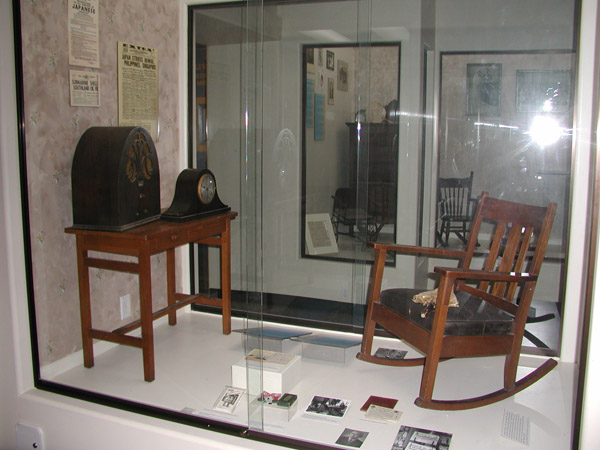Museum of Riverside

Reading the Walls Online Exhibit - Room #2 : Case 4
Days of Infamy

The Harada family members had achieved the American Dream, but their Japanese ancestry was a significant impediment following the bombing of Pearl Harbor by Japan. They, like everyone, listened to the radio announcement by President Roosevelt on December 8, 1941. The bombing of Pearl Harbor stunned all of America. This attack transformed California’s long history of anti-Asian legislation into federal policy, eliminating the civil liberties of all west coast residents of Japanese descent. The media and the American public were reacting to "war hysteria." Many California anti-Asian organizations fully believed that these individuals were a significant threat. The Haradas were among the 120,000 citizens and non-citizens of Japanese descent, who suddenly found themselves considered national security risks in the country they called home. They were accused of unsubstantiated acts of sabotage which resulted in alien identification certificates, curfews, and searches and confiscation of "contraband" -- items perceived as potentially threatening, such as radios, cameras, and weapons. Local Issei community leaders were arrested as potential threats. Though considered a leader in the community, Jukichi, probably due to his advanced age and diminished health, was not arrested.
Miné Harada’s husband, Saburo Kido, President of the JACL immediately sent a telegram to President Roosevelt proclaiming the patriotism of all Japanese Americans. Kido was concerned about how the United States government would now treat its resident Japanese population. President Roosevelt ignored Kido’s plea and the advice of some of his own advisors that the Japanese in the United States were not a threat.


